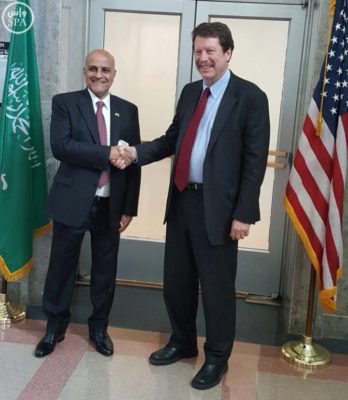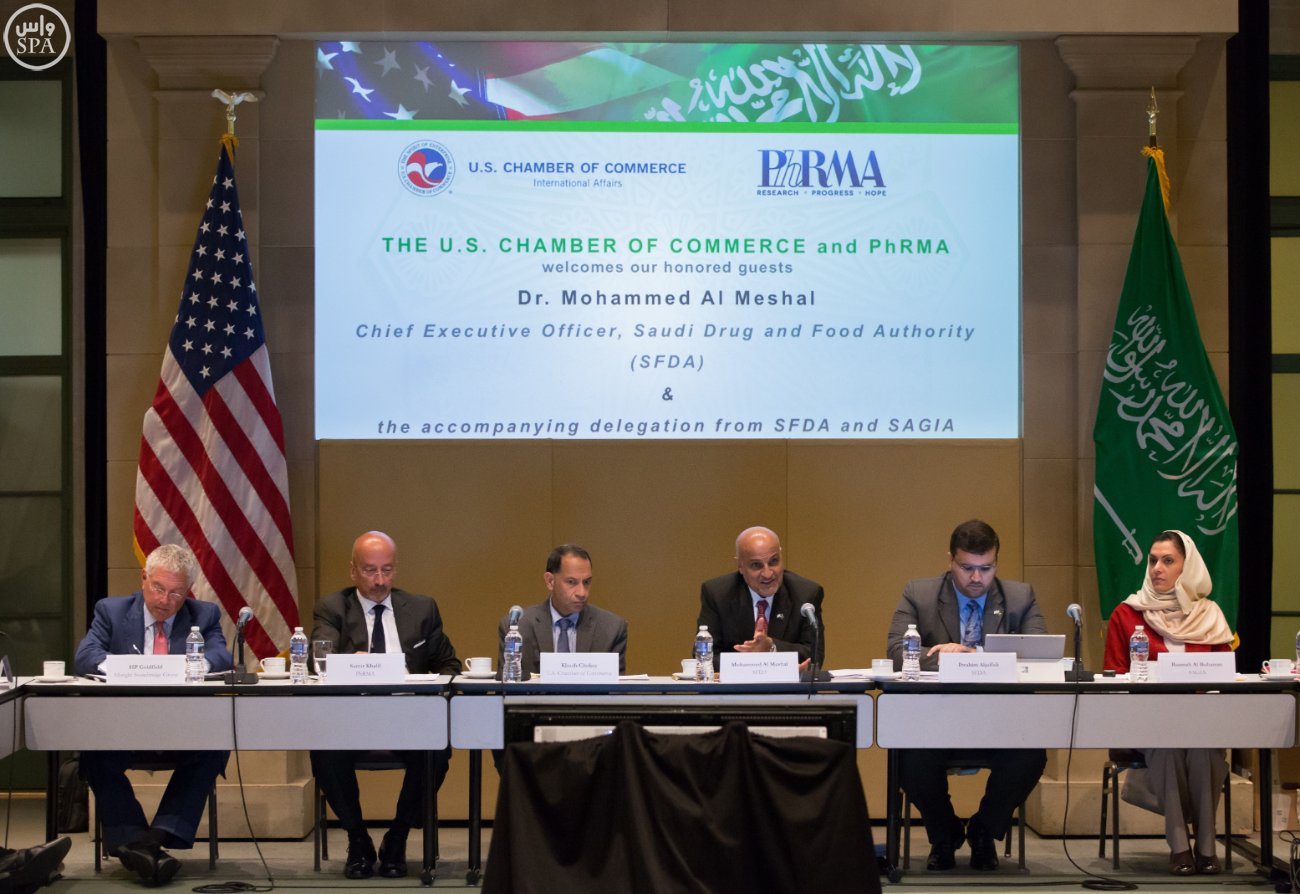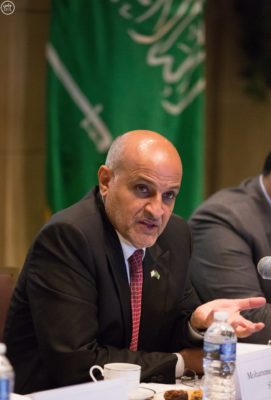2016 has been a good year for U.S. farmers and food producers looking to expand into the Saudi market as the Kingdom has relaxed previously established restrictions on both poultry and beef imports from the United States.
In July, Saudi Arabia lifted a lengthy four-year ban on US beef imports that followed a scare over Mad Cow disease in 2012. And this week, the Saudi Food and Drug Authority lifted a ban on American raised poultry after Saudi authorities said they were satisfied that the U.S. had controlled Avian Influenza.

The Head of the Saudi FDA Dr. Mohammed bin Abdul Rahman Al Meshaal, with Dr. Robert M. Califf, MD, the FDA’s commissioner of food and drugs, in Washington, D.C.
The decisions taken by Saudi Arabia to ban U.S. meat imports caused losses in the millions for American exporters and jump started a lobbying effort by interest groups in the U.S.
In 2012, U.S. Secretary of Agriculture delivered a letter outlining the reasons why the decision to close the Saudi market to U.S. beef was “inappropriate and unacceptable,” according to the U.S. Meat Export Federation (USMEA), a public affairs organization funded by meat exporting interests and the USDA.
“Of particular concern is the manner in which Saudi officials waited two weeks to make an announcement, then arbitrarily selected an effective shipping date of April 19 (2012) for the closure,” the USMEA said, citing the loss of millions of dollars in meat exports before that year’s Ramadan holiday. “Losing a market this size is not going to cripple the U.S. beef industry as a whole, but it could be absolutely devastating for small and medium-sized companies that specialize in serving Saudi Arabia.”
Prior to the ban the US exported $31m of beef and beef products to Saudi Arabia, according to the BBC. Under the new agreement, US exporters will initially be able to sell beef from cattle under 30-months of age.

Saudi FDA officials at the U.S. Chamber of Commerce.
Earlier this month a delegation from the Saudi Food and Drug Authority and officials from SAGIA visited Washington. Saudi Arabia’s Ambassador to the United States, Prince Abdullah bin Faisal bin Turki, met with the Chief Executive Officer of the Saudi FDA Dr. Mohammed bin Abdul Rahman Al Meshaal.

The Head of the Saudi FDA, Dr. Mohammed bin Abdul Rahman Al Meshaal, in Washington, D.C.
U.S. Ambassador to Saudi Arabia Joseph Westphal applauded the decision to reverse the export ban in July 2016, saying “our teams met face to face for extensive discussions with the goal of expanding bilateral trade to benefit both of our nations’ private sectors while meeting our common high standards for consumer safety…I commend the Saudi Food and Drug Authority and the team from the United States Embassy in Riyadh, the Office of the US Trade Representative, and the US Department of Agriculture for finding a solution that meets the market’s needs and sets an example for continued trade cooperation between Saudi Arabia and the United States.”









